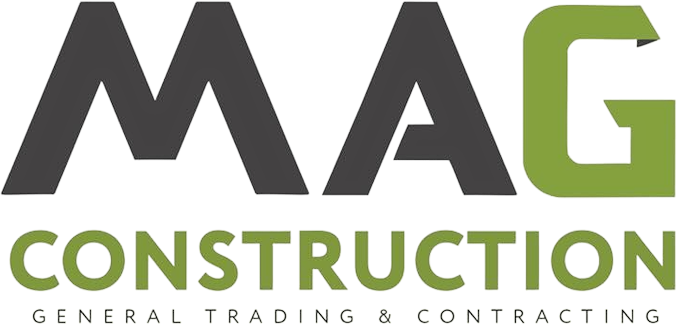
At MAG Construction, we understand the importance of adhering to employment and labor laws, particularly when managing engineering teams within the construction industry. Construction projects require skilled engineering teams, and it’s essential to ensure that all employment practices are compliant with local labor laws to avoid legal risks, foster a safe work environment, and maintain productive relationships between employers and employees.
Why Employment and Labor Law Matters for Engineering Teams
Engineering teams play a critical role in the successful execution of construction projects, from planning to design and structural development. Ensuring that your engineering workforce is treated fairly, is compensated appropriately, and works within a legally compliant framework is key to maintaining smooth project operations. Adhering to labor laws protects both the employer and the employees from disputes, penalties, and damages that may arise from non-compliance.
Key Areas of Employment and Labor Law for Engineering Teams
Labor Contracts and Employment Agreements
- Clear and Compliant Contracts: Employment contracts should clearly outline the terms and conditions of employment for engineering staff, including roles, responsibilities, compensation, working hours, and the nature of employment (full-time, part-time, or contractual). Contracts should comply with local labor laws and any specific construction industry regulations.
- Job Descriptions and Expectations: It is essential that the roles and expectations for each engineering position are clearly defined to avoid disputes over job performance and duties. Clear descriptions also protect both the employer and employee in the event of a misunderstanding.
Wages and Compensation
- Fair Compensation: Engineering teams should receive fair compensation for their skills, qualifications, and contributions to the project. Adherence to wage laws, including minimum wage standards, overtime pay, and bonuses, is essential to ensure compliance with local labor laws.
- Payment for Overtime: Engineering teams often work long hours to meet project deadlines. It is critical to understand and apply the regulations regarding overtime pay, which vary by jurisdiction. Engineers should be compensated accordingly for hours worked beyond the standard workweek, and all overtime policies must align with local regulations.
Working Hours and Rest Periods
- Legal Limits on Work Hours: Many jurisdictions have specific rules regarding the maximum number of hours employees can work per day or week, as well as mandatory rest periods. It is essential to comply with these regulations to ensure the well-being of engineering teams and prevent fatigue-related accidents.
- Shift Work and Scheduling: In construction projects, shift work may be necessary to meet deadlines. Proper scheduling of engineering teams ensures that the work is completed efficiently while respecting their legal rights to rest periods, weekends off, and vacation time.
Health and Safety Regulations
- Workplace Safety Standards: Engineering teams working on construction sites must be provided with a safe and healthy working environment. Compliance with occupational health and safety (OHS) laws is crucial. This includes providing necessary personal protective equipment (PPE), ensuring the proper use of machinery, and maintaining a hazard-free environment.
- Training and Risk Awareness: Engineering staff should be trained on site safety protocols and risk management. This training should be provided regularly and should be a part of the onboarding process for new employees.
Non-Discrimination and Equal Opportunity
- Equal Treatment of Employees: Employment law mandates that all employees, including engineers, are entitled to fair treatment without discrimination based on race, gender, nationality, religion, disability, or other protected characteristics. It is essential to promote an inclusive work environment and adhere to anti-discrimination laws.
- Equal Pay for Equal Work: Ensure that pay is equitable for all engineering team members who perform the same or similar roles, regardless of gender or other factors, as mandated by laws related to pay equality.
Employee Benefits and Leave
- Vacation and Sick Leave: Engineering teams are entitled to benefits such as vacation, sick leave, and paid holidays. Employers must comply with the legal requirements for paid time off and ensure that engineering teams can take time off without fear of discrimination or retaliation.
- Healthcare and Insurance Benefits: In some regions, employers are required to provide healthcare or insurance benefits to their employees. Providing access to health coverage for your engineering team helps meet legal obligations and contributes to employee well-being.
Termination and Severance
- Proper Termination Procedures: If an engineer’s employment needs to be terminated, it is essential to follow the correct procedures as dictated by employment laws. This includes providing adequate notice, severance pay (where applicable), and reasons for dismissal.
- Employee Rights upon Termination: Engineering staff should be aware of their rights in case of termination, including their eligibility for severance pay, final paycheck, and any unused vacation days. Proper documentation and transparency are essential to avoid legal complications.
Employee Rights and Dispute Resolution
- Handling Grievances and Disputes: Engineering teams must have a clear mechanism to report grievances, such as safety concerns, discrimination, or disputes related to working conditions. A transparent dispute resolution process can help resolve issues before they escalate to legal action.
- Mediation and Arbitration: If disputes arise between engineering staff and management, mediation or arbitration can often resolve issues without the need for court intervention. We assist in navigating these processes to ensure that any disagreements are resolved fairly and within the bounds of employment law.
Intellectual Property and Confidentiality Agreements
- Protecting Intellectual Property (IP): Engineers often create innovative designs and solutions that may have intellectual property value. Employment agreements should specify the ownership of intellectual property developed during employment, ensuring that any new inventions or designs belong to the company.
- Confidentiality and Non-Disclosure Agreements (NDAs): Engineering teams working on sensitive projects may be required to sign confidentiality agreements to protect proprietary information, trade secrets, and project details from being disclosed to competitors or unauthorized parties.
Union Representation and Collective Bargaining
- Rights to Organize: Depending on the jurisdiction, engineering teams may have the right to form or join a union to collectively bargain for better working conditions, wages, and benefits. It is important to understand and respect employees’ rights to unionize and engage in collective bargaining.
- Negotiating with Unions: If union representation is present, understanding the dynamics of negotiating with union representatives ensures that labor relations are managed professionally and in accordance with the law.

How MAG Construction Can Support Employment and Labor Law Compliance
Legal Consulting and Support: Our legal team can provide expert advice on all aspects of employment and labor law, ensuring that MAG Construction remains compliant with local laws and international standards for all engineering teams.
Custom Employment Policies: We help draft and implement customized employment policies that adhere to legal requirements and are suited to the specific needs of construction projects and engineering teams.
Training and Education: We offer training programs to ensure that both management and engineering teams are informed of their rights and responsibilities under employment law, including workplace safety, discrimination policies, and contract obligations.
Risk Mitigation and Legal Representation: In case of disputes or legal challenges, we assist with risk mitigation strategies and provide legal representation to protect both the company and its engineering staff.
Ongoing Compliance Monitoring: Employment laws and regulations can change over time. We provide ongoing compliance monitoring to ensure that all employment practices remain in line with evolving legal requirements.
Get in Touch
For guidance and support on Employment and Labor Law for your engineering teams, contact MAG Construction today. Let us help you create a legally compliant, safe, and productive environment for your engineering professionals, ensuring the smooth execution of your construction projects.
